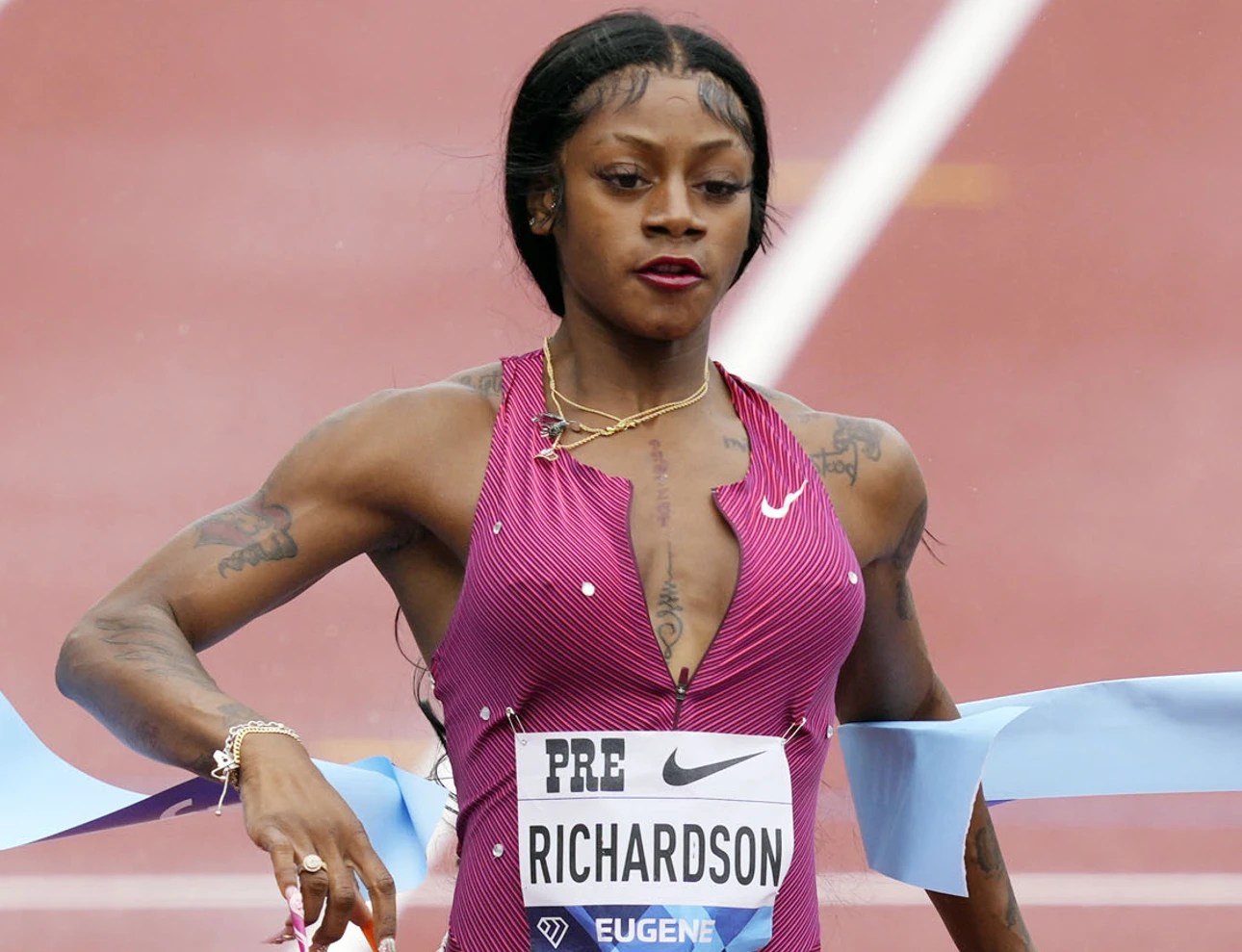The world watched as Sha'Carri Richardson, a rising star in track and field, blazed through the 100-meter trials with a fiery passion and undeniable talent. Her victory, however, was quickly overshadowed by news that sent shockwaves through the sports world: Richardson had tested positive for marijuana and faced a one-month suspension, disqualifying her from competing in the Tokyo Olympics.
This incident ignited a firestorm of debate, raising complex questions about the role of cannabis in sports, the fairness of anti-doping rules, and the pressures faced by athletes on the world stage. Richardson's case transcended the realm of sports, sparking broader conversations about social justice, racial disparities, and the evolving perception of marijuana in society.
To understand the full impact of what happened to Sha'Carri Richardson, we must delve into the details of the incident, explore the science behind cannabis as a performance-enhancing drug, and examine the historical and social context surrounding its use.
The controversy surrounding Richardson's case highlights the need for a nuanced understanding of athlete well-being, the impact of grief and trauma, and the inconsistencies in how different substances are regulated. It compels us to examine whether current anti-doping policies prioritize athlete health or simply aim to punish.
As we navigate this complex issue, it is essential to approach the conversation with empathy, acknowledging the human element at its core. Sha'Carri Richardson's story is not just about a positive drug test; it's about resilience, the right to grieve, and the ongoing fight for fairness and understanding in a world grappling with evolving norms.
Richardson's positive test came from a sample taken at the US Olympic trials, where she secured her spot on the team with a remarkable performance. The substance detected was THC, the psychoactive component of marijuana. While marijuana is legal for recreational use in many states and countries, it remains banned by the World Anti-Doping Agency (WADA) and the US Anti-Doping Agency (USADA). Consequently, Richardson's results from the trials were voided, and she was handed a one-month suspension, effectively ending her Olympic dreams.
The news sent shockwaves through the athletic community and beyond, sparking heated debates about the fairness and logic of marijuana being included on the banned substances list. Many argued that marijuana, unlike performance-enhancing drugs like steroids, does not provide a competitive advantage in sports like sprinting. Some even pointed to studies suggesting that marijuana might hinder athletic performance due to its effects on coordination and reaction time.
Richardson herself addressed the situation publicly, revealing that she had used marijuana as a way to cope with the recent death of her biological mother. She admitted to making a mistake but emphasized that her actions were not intended to enhance her performance. Her candidness sparked a broader conversation about mental health awareness in sports and the need for greater compassion and support for athletes facing personal struggles.
The Richardson case also brought to light the racial disparities associated with marijuana use and punishment. Black and brown communities have historically been disproportionately targeted and penalized for marijuana-related offenses, despite similar usage rates across racial groups. Critics argued that Richardson, a young Black woman, faced harsher scrutiny and consequences than athletes from other backgrounds who had committed similar infractions.
While the debate over marijuana's place in sports is far from settled, Sha'Carri Richardson's experience has undoubtedly left an indelible mark on the conversation. Her case underscores the need for a more nuanced and compassionate approach to athlete well-being, acknowledging the complexities of mental health and the need for a more equitable and just system.
The incident has also ignited calls for a reevaluation of the current anti-doping framework, urging governing bodies to prioritize athlete health and welfare while addressing the social and racial disparities often intertwined with these policies. As we move forward, Sha'Carri Richardson's story serves as a potent reminder that the pursuit of athletic excellence should not come at the cost of compassion, understanding, and a commitment to social justice.
Hack your rav4s air the ultimate cabin air filter replacement guide
Unlocking the skip the dishes restaurant portal your guide to online ordering success
Tiktok troubles why your account isnt working
What happened to Sha'Carri Richardson? The full story. - Khao Tick On
What happened to Sha'Carri Richardson? The full story. - Khao Tick On
Sha'Carri Richardson Tosses Wig Before Winning Friday's Race At U.S - Khao Tick On
Sha'Carri Richardson Will Officially Not Be Going to the Tokyo Olympics - Khao Tick On
What happened to Sha'Carri Richardson before she ran fastest time in - Khao Tick On
What Really Happened To Sha Carri Richardson Biological Mother - Khao Tick On
Sha'Carri Richardson Questions Decision to Let Russian Figure Skater - Khao Tick On
what happened to sha'carri richardson - Khao Tick On
Sha'Carri Richardson Tosses Wig Before Winning 100m Race - Khao Tick On
Sha'Carri Richardson Wins Even While Running in Stilettos (Nails) - Khao Tick On
They Laughed at Sha'Carri RIchardson Then This Happened. - Khao Tick On
Sprinter Sha'Carri Richardson Might Miss 100m Event at Olympics After - Khao Tick On
Track and Field Star Sha'Carri Richardson Kicked Off American Airlines - Khao Tick On
what happened to sha'carri richardson - Khao Tick On
U.S. sprinter Sha'Carri Richardson not named to relay team, won't - Khao Tick On




)




.jpg)



